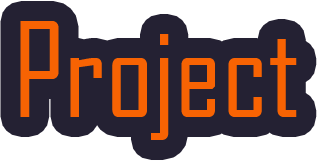Team:Tianjin/Project
From 2012.igem.org
(Difference between revisions)
| Line 1: | Line 1: | ||
{{:Team:Tianjin/frame/project}} | {{:Team:Tianjin/frame/project}} | ||
| - | = | + | <html> |
| - | + | <style type="text/css"> | |
| + | #secondpane {color:#fff; | ||
| + | width: 190px; | ||
| + | margin-left:5px; | ||
| + | } | ||
| + | .menu_list { | ||
| + | position:fixed;top:20px;} | ||
| + | .menu_head { | ||
| + | padding: 5px 10px; | ||
| + | cursor: pointer; | ||
| + | position: relative; | ||
| + | border:1px solid #fff; | ||
| + | margin:1px; | ||
| + | font-weight:bold; | ||
| + | background: #f76303; | ||
| + | color:#fff | ||
| + | } | ||
| + | .menu_head:hover | ||
| + | { | ||
| + | cursor: pointer; | ||
| + | color: #fff; | ||
| + | background: #8e4820; | ||
| + | text-decoration: none; | ||
| + | background-position: 0 0; | ||
| + | } | ||
| + | .menu_body { | ||
| + | display:none; | ||
| + | } | ||
| + | .menu_children { | ||
| + | background: #aaa; | ||
| + | cursor: pointer; | ||
| + | padding: 5px 10px; | ||
| + | font-size:12px; | ||
| + | border-top: 1px solid #fff; | ||
| + | border-bottom: 1px solid #fff; | ||
| + | border-left: 1px solid #fff; | ||
| + | border-right: 1px solid #fff; | ||
| + | } | ||
| + | .menu_body a{ | ||
| + | display:block; | ||
| + | color:#fff; | ||
| + | padding-left:10px; | ||
| + | font-weight:bold; | ||
| + | text-decoration:none; | ||
| + | } | ||
| + | .menu_children:hover{ | ||
| + | cursor: pointer; | ||
| + | color: #fff; | ||
| + | text-decoration:none; | ||
| + | background:#777777; | ||
| + | } | ||
| - | + | </style> | |
| + | <div style="float:left;"> | ||
| + | <div id="secondpane"> <!--Code for menu starts here--> | ||
| + | <p class="menu_head">Modeling Contents</p> | ||
| + | <div class="menu_body"> | ||
| + | <div class="menu_children"> | ||
| + | <a href="https://2012.igem.org/Team:Tianjin/Project/OrthogonalSystem">Orthogonal System</a> | ||
| + | </div> | ||
| + | <div class="menu_children"> | ||
| + | <a href="https://2012.igem.org/Team:Tianjin/Project/Gene">Safety Encryption</a> | ||
| + | </div> | ||
| + | <div class="menu_children"> | ||
| + | <a href="https://2012.igem.org/Team:Tianjin/Modeling/Regulation">Logic Metabolism Regulation</a> | ||
| + | </div> | ||
| + | </div> | ||
| + | <p class="menu_head">In this page</p> | ||
| + | <div class="menu_body"> | ||
| + | <div class="menu_children"> | ||
| + | <a href="#Overview">Overview</a> | ||
| + | </div> | ||
| + | <div class="menu_children"> | ||
| + | <a href="#Orthogonal_System">Orthogonal System</a> | ||
| + | </div> | ||
| + | <div class="menu_children"> | ||
| + | <a href="#Gene_Pollution_Prevention_and_Gene_Encryption">Safety Encryption</a> | ||
| + | </div> | ||
| + | <div class="menu_children"> | ||
| + | <a href="#Logic_Metabolism_Regulation">Logic Metabolism Regulation</a> | ||
| + | </div> | ||
| + | </div> | ||
| + | <p class="menu_head">Header-3</p> | ||
| + | <div class="menu_body"> | ||
| + | <div class="menu_children"> | ||
| + | <a href="#">Link-1</a> | ||
| + | </div> | ||
| + | <div class="menu_children"> | ||
| + | <a href="#">Link-2</a> | ||
| + | </div> | ||
| + | <div class="menu_children"> | ||
| + | <a href="#">Link-3</a> | ||
| + | </div> | ||
| + | </div> | ||
| + | </div> <!--Code for menu ends here--> | ||
| + | </div> | ||
| + | </html> | ||
| + | <div id="text-content"> | ||
| + | |||
| + | |||
| + | <center><span style="font-size:46px;font-family:Cambria;margin-top:10px;line-height:80%">Calculation and Derivation of the protein expression amount model in three states</span></center> | ||
| + | <br> | ||
| - | |||
| - | |||
{{:Team:Tianjin/footer}} | {{:Team:Tianjin/footer}} | ||
Revision as of 12:03, 26 September 2012

 "
"



















